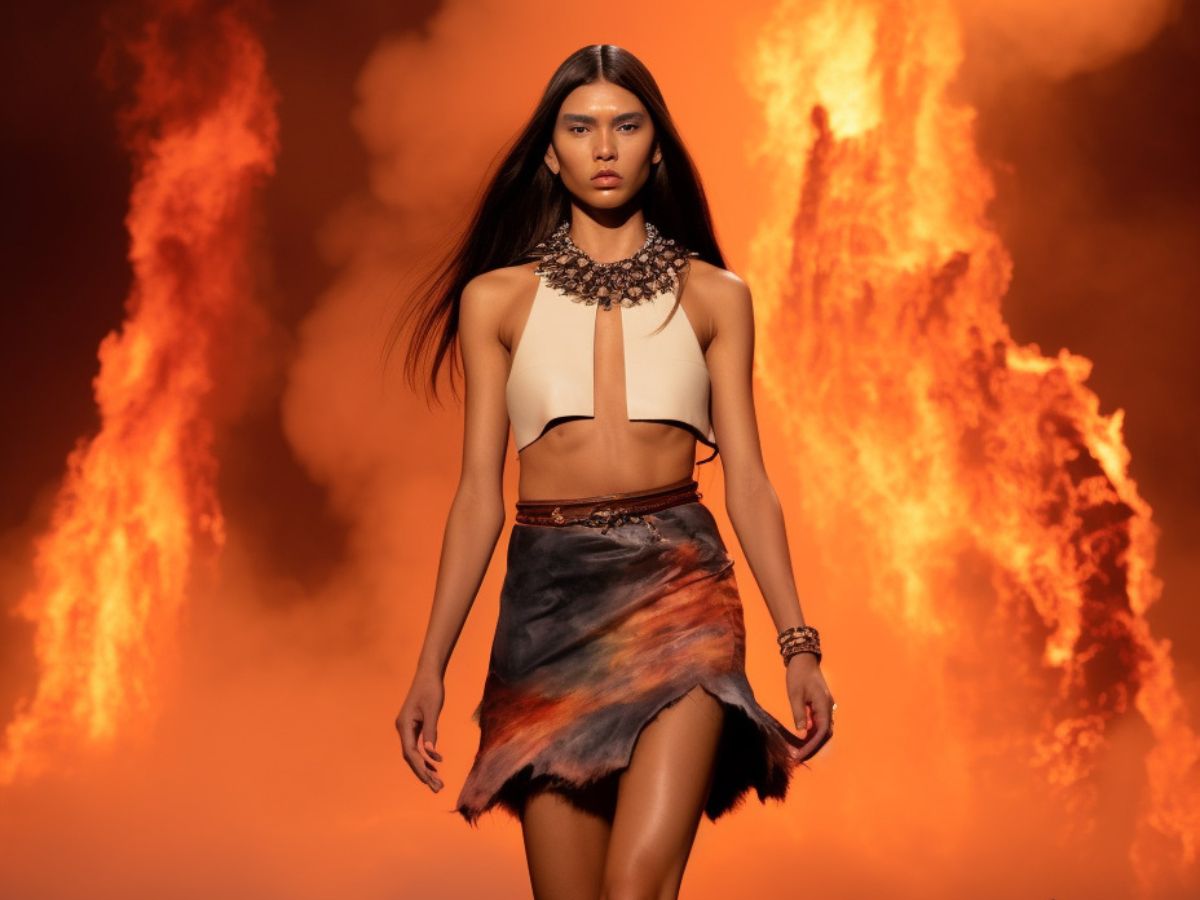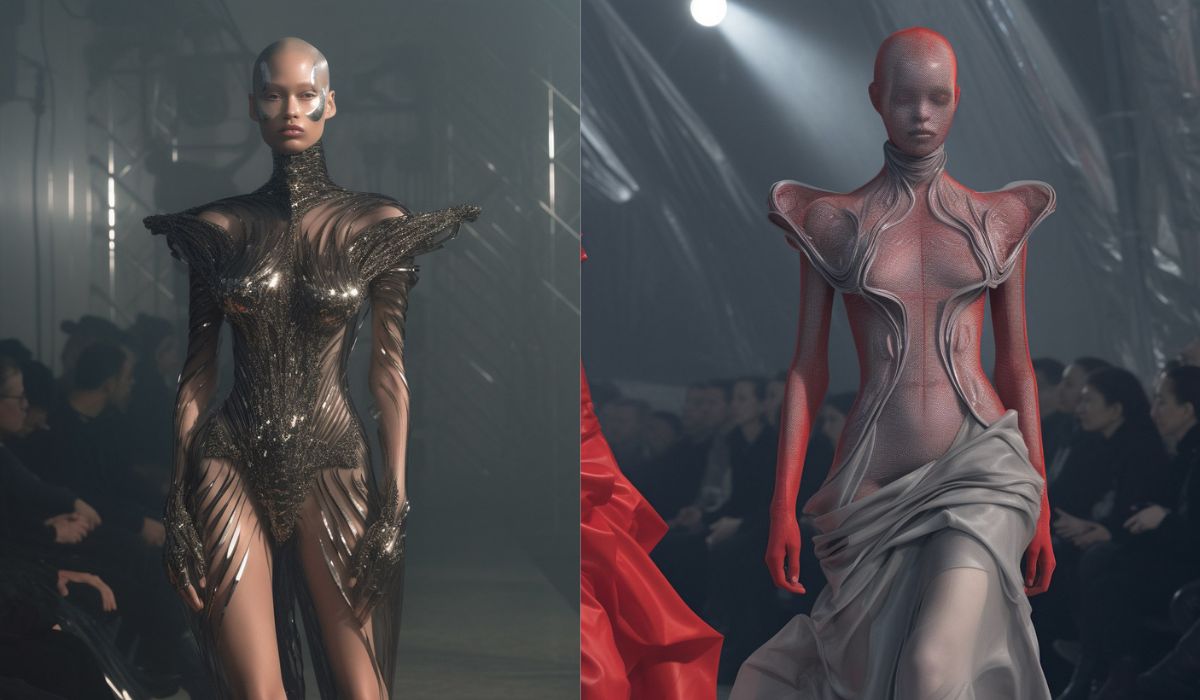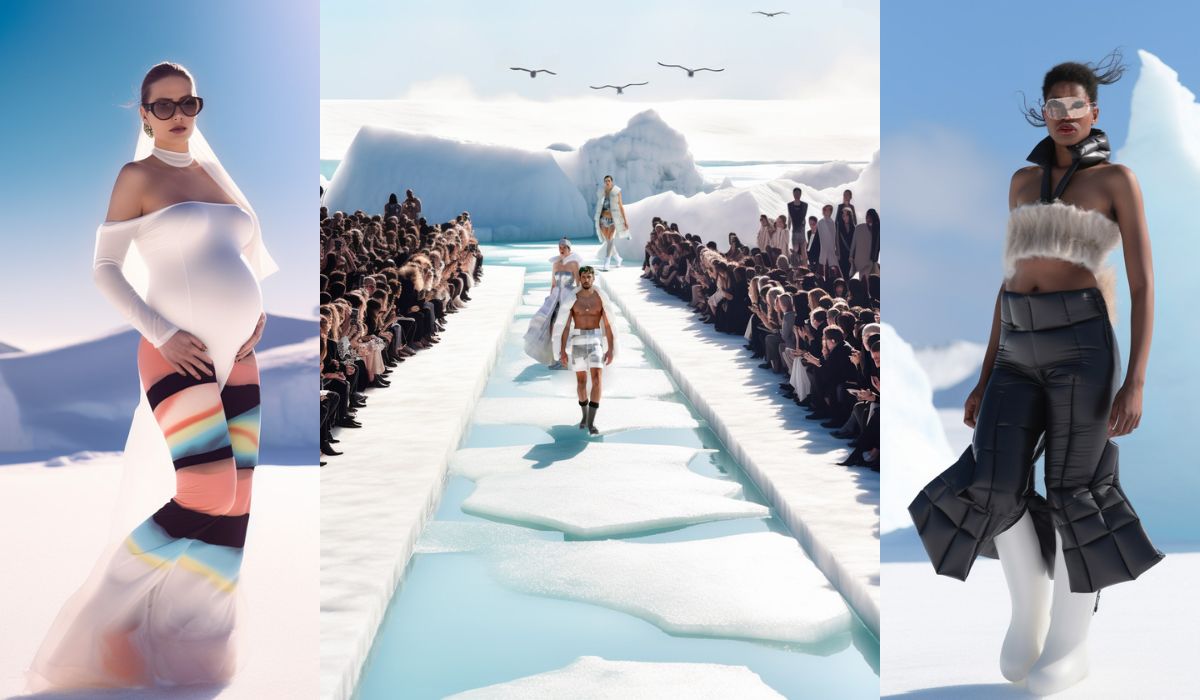
New York City’s first-ever AI Fashion Week took place on April 20 and 21 at Soho’s Spring Place, the iconic site of many past New York fashion shows. Instead of catwalks, command-generated models graced digital screens to represent a concept that could revolutionize the accessibility and understanding of high-fashion design.
In a sunlit room on the sixth floor, 24 screens displayed runway-style images created with a variety of imaging software, including Midjourney. At a glance, they look like standard runway photos, complete with event spectators and set design. However, a closer look reveals a quality of airbrushed perfection that shows the lifelike capabilities of artificial intelligence, which were able to craft unique models and environments like rainforests and desert oases. Guests strolled from screen to screen, taking photos and sipping drinks as they absorbed the out-of-the-ordinary fashion event with no tangible garments.
For the collection of AI looks, over 400 creators submitted their works to be critiqud by an acclaimed panel of judges. Not as high-profile as fashion week, but rather a competition of up-and-coming designers, three winners will be picked by the jury to be part of the initial cohort for the first AI Fashion Tech incubator. This program, developed in partnership with Maison Meta and Revolve, will allow winners to create their own brand and design, producing a full collection to sell on Revolve’s online store.

“The goal is to launch one of these designers, potentially one that wouldn’t have the opportunity otherwise, to turn their creative vision into a real-life collection,” said Cyril Foiret, founder of AI creative studio Maison Meta. “We encouraged participants to generate looks with consistency and to create a cohesive world around the collection.”
The jury of experienced panelists includes Michael Mente, co-founder and CEO of Revolve, Dame Pat McGrath, celebrity makeup artist, and Tiffany Godoy, head of editorial at Vogue Japan, among others. Along with the judges, event onlookers were able to vote online to influence the final decision, with over 1,000 guests checking in throughout the weekend.
Keeping in tune with its internet foundation, the collection submissions received over 350,000 page views, with global viewers across countries including the US, Brazil, Italy, and Spain getting involved in the competition. This digitization of exclusive fashion, which allows people from all walks of life to observe and share their perspective, opens a door to a future of haute couture that could be penetrable by people everywhere.

Some viewers of this newly imagined virtual reality might question the amount of skill or planning that goes into crafting AI images. To some extent, AI-generated fashion campaigns are less effort – they don’t require teams of photographers, models, stylists, hair and makeup, or a real-life studio. The final product emerges almost instantly, without months of coordination or production needed.
However, the one thing that certainly isn’t lacking in the featured collections is creativity. The creative direction surrounding each set of looks is intentional and distinct, undoubtedly a representation of the designer’s individual style. The imagined garments flow together as they play off of one another to tell a story. Just like any real design project, the ideals and expectations for a unique vision are the same.
AI fashion, especially in this competition-based setting, offers the uncommon opportunity to create a world that ignores the confines and limitations of traditional fashion society. The potential for intergalactic sceneries and proportions is limitless, which sparked some conversation as to why the majority of designers submitted collections featuring standard thin, almost all-white models. Some protestors even gathered outside of Spring Studios to lambast the lack of racial diversity.

Rachel Koukal’s collection, “Soft Apocalypse,” featured a diverse cast of mostly curvy models wearing futuristic, Dune-inspired silhouettes. A graphic designer and art director by trade, Koukal worked in the fashion industry but became disillusioned by its outdated perspectives on the ideal body. “I’ve been using Midjourney and I thought, ‘This is great! I can imagine any type of body I want,’ so I decided I’m going to create a collection that’s size inclusive and body-type inclusive,” she told Vogue.
Truly, the most exciting element of AI Fashion Week is its limitless potential. From image generators to chat bots, AI is a phenomenon that will certainly alter the way all kinds of industries operate. Where’s the fun in that if not to reimagine, to create something that transcends the borders and limitations of reality?


